Related Research Articles

William James was an American philosopher and psychologist,and the first educator to offer a psychology course in the United States. James is considered to be a leading thinker of the late 19th century,one of the most influential philosophers of the United States,and the "Father of American psychology."
Transcendentalism is a philosophical,spiritual,and literary movement that developed in the late 1820s and 1830s in the New England region of the United States. A core belief is in the inherent goodness of people and nature,and while society and its institutions have corrupted the purity of the individual,people are at their best when truly "self-reliant" and independent. Transcendentalists saw divine experience inherent in the everyday. Transcendentalists saw physical and spiritual phenomena as part of dynamic processes rather than discrete entities.

George Santayana,was a Spanish-American philosopher,essayist,poet,and novelist. Born in Spain,Santayana was raised and educated in the United States from the age of eight and identified as an American,yet always retained a valid Spanish passport. At the age of 48,he left his academic position at Harvard University and permanently returned to Europe;his last will was to be buried in the Spanish Pantheon in the Campo di Verano,Rome.

The perennial philosophy,also referred to as perennialism and perennial wisdom,is a school of thought in philosophy and spirituality which posits that the recurrence of common themes across world religions illuminates universal truths about the nature of reality,humanity,ethics,and consciousness. Some perennialists emphasise common themes in religious experiences and mystical traditions across time and culture,while others argue that religious traditions share a single,metaphysical truth or origin from which all esoteric and exoteric knowledge and doctrine has grown.
Tu Weiming is a Chinese-born American philosopher. He is Chair Professor of Humanities and Founding Director of the Institute for Advanced Humanistic Studies at Peking University. He is also Professor Emeritus and Senior Fellow of Asia Center at Harvard University.
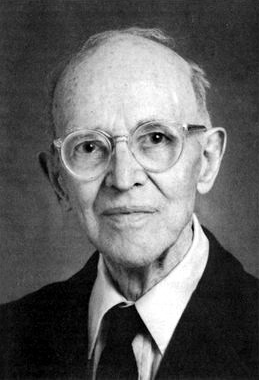
Charles Hartshorne was an American philosopher who concentrated primarily on the philosophy of religion and metaphysics,but also contributed to ornithology. He developed the neoclassical idea of God and produced a modal proof of the existence of God that was a development of Anselm of Canterbury's ontological argument. Hartshorne is also noted for developing Alfred North Whitehead's process philosophy into process theology.
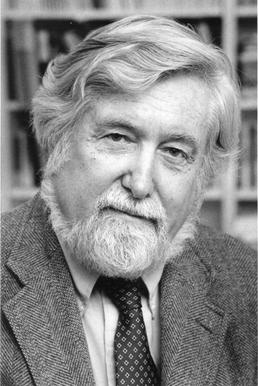
Clifford James Geertz was an American anthropologist who is remembered mostly for his strong support for and influence on the practice of symbolic anthropology and who was considered "for three decades... the single most influential cultural anthropologist in the United States." He served until his death as professor emeritus at the Institute for Advanced Study,Princeton.

William Ernest Hocking was an American idealist philosopher at Harvard University. He continued the work of his philosophical teacher Josiah Royce in revising idealism to integrate and fit into empiricism,naturalism and pragmatism. He said that metaphysics has to make inductions from experience:"That which does not work is not true." His major field of study was the philosophy of religion,but his 22 books included discussions of philosophy and human rights,world politics,freedom of the press,the philosophical psychology of human nature;education;and more. In 1958 he served as president of the Metaphysical Society of America. He led a highly influential study of missions in mainline Protestant churches in 1932. His "Laymen's Inquiry" recommended a greater emphasis on education and social welfare,transfer of power to local groups,less reliance on evangelizing and conversion,and a much more respectful appreciation for local religions.
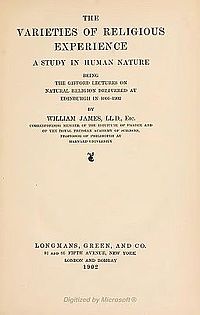
The Varieties of Religious Experience:A Study in Human Nature is a book by Harvard University psychologist and philosopher William James. It comprises his edited Gifford Lectures on natural theology,which were delivered at the University of Edinburgh,Scotland between 1901 and 1902. The lectures concerned the psychological study of individual private religious experiences and mysticism,and used a range of examples to identify commonalities in religious experiences across traditions.

Abdolkarim SoroushPersian pronunciation:[æbdolkæriːmsoruːʃ]),born Hossein Haj Faraj Dabbagh,is an Iranian Islamic thinker,reformer,Rumi scholar,public intellectual,and a former professor of philosophy at the University of Tehran and Imam Khomeini International University. He is among the most influential figures in the religious intellectual movement of Iran. Soroush is currently a visiting scholar at the University of Maryland in College Park,Maryland. He was also affiliated with other institutions,including Harvard,Princeton,Yale,Columbia,the Leiden-based International Institute as a visiting professor for the Study of Islam in the Modern World (ISIM) and the Wissenschaftskolleg in Berlin. He was named by Time magazine as one of the world's 100 most influential people in 2005,and by Prospect magazine as one of the most influential intellectuals in the world in 2008. Soroush's ideas,founded on relativism,prompted both supporters and critics to compare his role in reforming Islam to that of Martin Luther in reforming Christianity.
A religious experience is a subjective experience which is interpreted within a religious framework. The concept originated in the 19th century,as a defense against the growing rationalism of Western society. William James popularised the concept. In some religions,this is said to sometimes result in unverified personal gnosis.
Scholarly approaches to mysticism include typologies of mysticism and the explanation of mystical states. Since the 19th century,mystical experience has evolved as a distinctive concept. It is closely related to "mysticism" but lays sole emphasis on the experiential aspect,be it spontaneous or induced by human behavior,whereas mysticism encompasses a broad range of practices aiming at a transformation of the person,not just inducing mystical experiences.
Wing-tsit Chan was a Chinese scholar and professor best known for his studies of Chinese philosophy and his translations of Chinese philosophical texts. Chan was born in China in 1901 and went to the United States in 1924,earning a Ph.D. from Harvard University in 1929. Chan taught at Dartmouth College and Chatham University for most of his academic career. Chan's 1963 book A Source Book in Chinese Philosophy was highly influential in the English-speaking world,and was often used as a source for quotations from Chinese philosophical classics.

Keith Edward Yandell was a philosopher of religion who became notable by his teaching and his writings.

Walter Terence Stace was a British civil servant,educator,public philosopher and epistemologist,who wrote on Hegel,mysticism,and moral relativism. He worked with the Ceylon Civil Service from 1910 to 1932,and from 1932 to 1955 he was employed by Princeton University in the Department of Philosophy. He is most renowned for his work in the philosophy of mysticism,and for books like Mysticism and Philosophy (1960) and Teachings of the Mystics (1960). These works have been influential in the study of mysticism,but they have also been severely criticised for their lack of methodological rigor and their perennialist pre-assumptions.
Religious Experience is a 1985 book by Wayne Proudfoot,published by University of California Press. It received the American Academy of Religion Award in 1986,one year after publication. Its area of exploration is along the lines of that explored by William James in The Varieties of Religious Experience. One of the key questions routinely raised by such academic study is whether religious experience of individuals reflects a truly hidden spiritual reality or merely physiological changes of state.
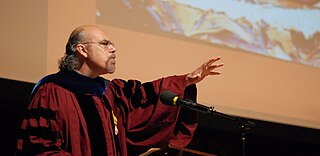
Davíd Lee Carrasco is an American academic historian of religion,anthropologist,and Mesoamericanist scholar. As of 2001,he holds the inaugural appointment as Neil L. Rudenstine Professor of Latin America Studies at the Harvard Divinity School,in a joint appointment with the Faculty of Arts and Sciences' Department of Anthropology at Harvard University. Carrasco previously taught at the University of Colorado,Boulder and Princeton University and is known for his research and publications on Mesoamerican religion and history,his public speaking as well as wider contributions within Latin American studies and Latino/a studies. He has made statements about Latino contributions to US democracy in public dialogues with Cornel West,Toni Morrison,and Samuel P. Huntington. His work is known primarily for his writings on the ways human societies orient themselves with sacred places.

Mysticism is popularly known as becoming one with God or the Absolute,but may refer to any kind of ecstasy or altered state of consciousness which is given a religious or spiritual meaning. It may also refer to the attainment of insight in ultimate or hidden truths,and to human transformation supported by various practices and experiences.
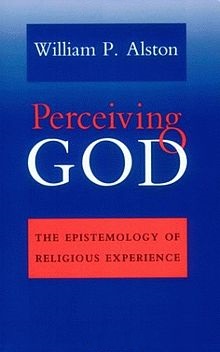
Perceiving God:The Epistemology of Religious Experience is a 1991 book about the philosophy of religion by the philosopher William Alston,in which the author discusses experiential awareness of God. The book was first published in the United States by Cornell University Press. The book received positive reviews and has been described as an important,well-argued,and seminal work. However,Alston was criticized for his treatment of the conflict between the competing claims made by different religions.
Judith Reesa Baskin is a religious studies scholar at the University of Oregon in the United States. She is Associate Dean for Humanities,Director of the Harold Schnitzer Family Program in Judaic Studies,and the Philip H. Knight Professor of Humanities. She held positions at the University of Massachusetts Amherst,Yale University,and State University of New York at Albany,prior to accepting a faculty position at the University of Oregon in 2000. She was appointed Associate Dean for Humanities in the College of Arts and Sciences in July,2009.
References
- ↑ Johansson, Lars (1999). "Mystical Knowledge, New Age, and Missiology". In Kirk, J. Andrew; Vanhoozer, Kevin J. (eds.). To Stake a Claim: Mission and the Western Crisis of Knowledge. New York: Orbis Books. p. 178. ISBN 978-1-57075-274-2.